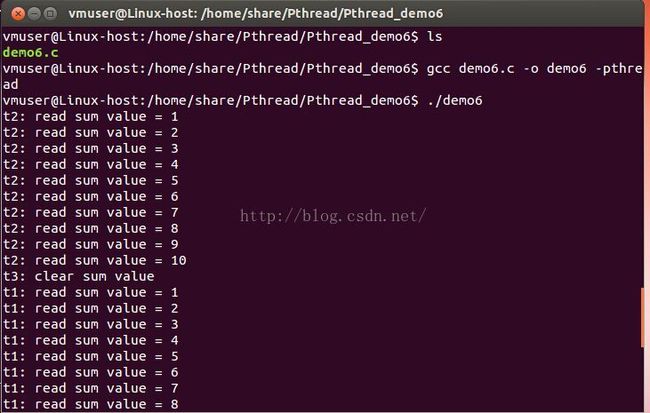- Linux内核编程(十四)IIC总线驱动FT5X06触摸屏
小仇学长
LinuxlinuxIIC驱动FT5X06
本文目录前述:一、IIC子系统框架二、I2C设备驱动层1.i2c_client编写(C语言版-旧内核)2.i2c_client编写(设备树版-新内核) 前述:对于IIC的基础知识,这里不做过多的介绍,详细情况查看下面的两篇文章。文章一:超详细!新手必看!STM32基础-IIC串行通信协议-IO口模拟IIC操作BMP180。文章二:Linux应用编程(四)IIC(获取BMP180温度/气压数据)。
- Linux应用编程概念
Linux兵工厂
linux运维服务器
Linux应用编程涉及到在Linux环境下开发和运行应用程序的一系列概念。以下是一些涵盖Linux应用编程的基本概念:1.系统调用系统调用是用户空间程序与内核之间进行通信的方式。它提供了一组接口,允许应用程序请求内核执行特权操作。在Linux中,系统调用的例子包括fork(创建新进程)、read(读取文件)、write(写入文件)等。开发者通常通过系统调用接口来访问操作系统提供的功能。#inclu
- 一文讲透Linux应用编程—进程原理
Trump. yang
Linux笔记linux运维服务器
文章目录程序的开始和结束main函数由谁调用?程序是如何结束的?atexit注册进程终止处理函数return、exit、_exit三者区别进程环境环境变量进程运行的虚拟空间进程的正式引入什么是进程?进程ID多进程调度原理fork创建子进程为什么要创建子进程?fork的内部原理父子进程对文件的操作进程的诞生和消亡进程的诞生进程的消亡僵尸进程孤儿进程waitpid介绍waitpid和wait的区别?w
- Linux应用开发之高精度定时器
你好呀程序员
linux运维服务器
linux应用编程工具篇linux工具编程之POSIX定时器前言POSIX定时器API介绍1.timer_create2.timer_settime3.timer_gettime(timer_ttimerid,structitimerspec*value)4.inttimer_delete(timer_ttimerid);linux工具编程之POSIX定时器前言POSIX提供了一套定时器API,通
- 【Linux应用编程笔记】输入设备
第六个葫芦娃
Linuxlinux笔记armarm开发嵌入式硬件单片机
系列文章目录【Linux应用编程笔记】GPIO本系列使用的开发板为正点原子阿尔法IMX6ULL开发板,及根据正点原子所的提供教程学习文章目录系列文章目录【Linux应用编程笔记】GPIO做什么?一、编写流程1、input子系统2、读取数据的流程3、解析数据应用编程二、宏定义1、type2、code3、数据同步做什么?获取到输入设备输入的信息。一、编写流程输入设备:能够产生输入事件的设备,也成为in
- 【Linux应用编程笔记】tslib库使用
第六个葫芦娃
Linuxlinux笔记armarm开发嵌入式硬件单片机
系列文章目录【Linux应用编程笔记】GPIO【Linux应用编程笔记】输入设备本系列使用的开发板为正点原子阿尔法IMX6ULL开发板,及根据正点原子所的提供教程学习文章目录系列文章目录做什么?一、tslib简介二、tslib移植1、编译tslib源码2、tslib安装目录文件夹及移植1、bin目录2、etc目录3、include目录4、lib目录5、share目录三、tslib库的使用1、环境变
- Linux应用编程 生成随机数
Trump. yang
笔记Linuxlinux运维c语言
Linux使用随机数随机数与伪随机数随机数是随机出现的,没有任何规律的一组数列真正的完全随机的数列是不存在的,只是一种理想情况,我们平时要用到的随机数时一般只能通过一些算法得到一个伪随机数列。我们平时说的随机数,基本上指的是伪随机数。Linux中随机数API连续多次调用rand函数可以返回一个伪随机数列srand函数用来设置rand获去的伪随机序列的种子。相关Demo#include#includ
- Linux应用编程之读写文件操作详解
Trump. yang
笔记Linuxlinux服务器c语言
Linux读写操作文件文件操作的主要接口API(1)什么是操作系统API(2)Linux中常见文件IO接口(3)文件操作的一般步骤(4)文件描述符文件读写示例open函数的flag详解fcntl函数详解fcntl的原型和功能标准IO库标准IO和文件IO有什么区别?常用标准IO函数介绍标准IO代码示例文件操作的主要接口API(1)什么是操作系统APIOS本身就有一部分是驱动。API实指就是一些函数,
- 【Linux应用编程笔记】GPIO
第六个葫芦娃
Linuxlinux笔记嵌入式硬件单片机arm
系列文章目录本系列使用的开发板为正点原子阿尔法IMX6ULL开发板,及根据正点原子所的提供教程学习文章目录系列文章目录做什么?一、应用层如何操作GPIO1、导出gpiox文件夹2、配置GPIO3、完成二、用代码的方式控制GPIO1、控制GPIO输出2、检测GPIO输入3、GPIO中断做什么?控制GPIO输出高低电平、输入及中断一、应用层如何操作GPIO这里通过sysyfs的方式1、导出gpiox文
- 正点原子linux应用编程——提高篇2
努力自学的小夏
linux学习linux笔记学习
本篇主要针对的是LCD相关的应用程序。FrameBuffer应用编程FrameBuffer介绍帧缓冲(framebuffer)是Linux系统中的一种显示驱动接口,它将显示设备(如LCD)进行抽象、屏蔽了不同显示设备硬件的实现,对应用层抽象为一块显示内存(显存),它允许上层应用程序直接对显示缓冲区进行读写操作,而用户不必关心物理显存的位置等具体细节,这些都由Framebuffer设备驱动来完成。F
- 正点原子linux应用编程——提高篇3
努力自学的小夏
linux学习linux学习笔记
PWM应用编程应用层操控PWM与LED设备一样,PWM同样也是通过sysfs方式进行操控。进入到/sys/class/pwm目录下,会有形如pwmchipX的文件,就是对应的PWM控制器。出厂的话就是pwmchip0和pwmchip4,pwmchip0对应TIM4,pwmchip4对应TIM1。进入pwmchip4目录,重点是export、npwm以及unexport三个属性文件:npwm:制度文
- 正点原子linux应用编程——提高篇4
努力自学的小夏
linux学习linux学习笔记
MP157开发板支持音频,板上搭载了音频编解码芯片CS42L51,支持播放以及录音功能。ALSA概述ALSA是AdvancedLinuxSoundArchitecture(高级的Linux声音体系)的缩写,目前已经成为了linux下的主流音频体系架构,提供了音频和MIDI的支持,替代了原先旧版本中的OSS(开发声音系统);这一部分在驱动的时候,对这套驱动框架有过介绍,这里就不做赘述。在应用层,AL
- 正点原子linux应用编程——提高篇5
努力自学的小夏
linux学习linux学习笔记websocket
这篇笔记记一下网络应用编程以及CAN总线的应用编程。网络基础知识这个在学习lwIP的时候已经接触过了,这边再过一下,我自己觉得没什么意思的我就跳过了。网络通信概述网络通信本质上是一种进程间通信,是位于网络中不同主机上的进程之间的通信,属于IPC的一种,通常称为socketIPC,以此解决在网络环境中,不同主机上应用程序之间的通信问题。可以分成以下的三个层次:硬件层:网卡设备,收发网络数据驱动层:网
- P3 Linux应用编程:系统调用与库函数
@ChenPi
LinuxC应用编程(概念类)c++armlinuxc语言qt嵌入式
前言个人主页:@ChenPi推荐专栏1:《C++_@ChenPi的博客-CSDN博客》✨✨✨推荐专栏2:《LinuxC应用编程(概念类)_@ChenPi的博客-CSDN博客》✨✨✨推荐专栏3:《链表_@ChenPi的博客-CSDN博客》✨✨✨本篇简介:在上一章中我学习了Linux系统目录结构,这章我们来认识一下什么是系统调用和库函数在第一章的时候我们说过我们应用开发是在应用层的,但是应用层是不能直
- Linux应用编程之多次打开同一个文件
supersmart@
linuxinode文件描述符文件表
同一个文件可以被多次打开,譬如在一个进程中多次打开同一个文件、在多个不同的进程中打开同一个文件。⚫一个进程内多次open打开同一个文件,那么会得到多个不同的文件描述符fd,同理在关闭文件的时候也需要调用close依次关闭各个文件描述符。多次打开同一个文件测试代码1#include#include#include#include#include#include#includeintmain(void
- 嵌入式学习笔记-linux应用编程和网络编程-3.4 linux进程全解
F__pj
linux应用编程和网络编程linux嵌入式
一、程序的开始和结束1、main函数由谁调用编译链接时的引导代码。操作系统下的应用程序其实在main执行前也需要先执行一段引导代码才能去执行main,我们写应用程序时不用考虑引导代码的问题,编译链接时(准确说是链接时)由链接器将编译器中事先准备好的引导代码给链接进去和我们的应用程序一起构成最终的可执行程序。运行时的加载器。加载器是操作系统中的程序,当我们去执行一个程序时(譬如./a.out,譬如代
- 基于Qt 的CAN Bus实现
Qt魔术师
Qt高级开发工程师1024程序员节qtc++uiCANBus
#简介从Qt5.8开始,提供了CANBus类,假设您的Qt版本没有CANBus,可以参考Linux应用编程来操控开发板的CAN,目前我们主要讲解Qt相关的CAN编程。其实Qt也提供了相关的QtCAN的例子,我们也可以直接参考来编程。读者手上需要有测试CAN的仪器!否则写好程序,却无法测试。(很显然我就没有)#STM32板子简介主要是讲解如何在Qt里对CAN编程。#项目示例项目简介:本例适用于STM
- (49)LINUX应用编程和网络编程之四 Linux进程全解
weixin_30764771
补充:1、C程序的执行过程:C编译器调用链接器,链接器设置可执行程序文件的启动起始地址(启动例程),启动例程获得内核传递来的命令行参数和环境变量值,为调用main函数做准备。【实际上该启动例程常用汇编语言编写】,如果将启动例程换做C语言就是:exit(main(argc,argv));main(intargc,char*argv[],char*engv[]);argv为指向参数的各个指针所构成的数
- Linux应用编程之dup函数和dup2函数
supersmart@
dupdup2复制文件描述符Linux
在Linux系统中,open返回得到的文件描述符fd可以进行复制,复制成功之后可以得到一个新文件描述符,使用新的文件描述符和旧的文件描述符都可以对文件进行IO操作,复制得到的文件描述符和旧的文件描述符拥有相同的权限,譬如使用旧的文件描述符对文件有读写权限,那么新的文件描述符同样也具有读写权限;在Linux系统下,可以使用dup或dup2这两个系统调用对文件描述符进行复制。我们来学习下两个函数的用法
- 嵌入式学习笔记-linux应用编程和网络编程-3.8 网络基础
F__pj
linux应用编程和网络编程网络路由器
一、再论进程1、从进程间通信说起网络域套接字socket,网络通信其实就是位于网络中不同主机上面的2个进程之间的通信。2、网络通信概述硬件部分:网卡操作系统底层:网卡驱动操作系统API:socket接口应用层:低级(直接基于socket接口编程)应用层:高级(基于网络通信应用框架库)应用层:更高级(http、网络控件等)3、网络通信概述重点1:掌握网络通信的架构层次和基本原理重点2:掌握socke
- 有关linux中的文件IO的操作
嵌入式之入坑笔记
linux教程linux
Linux应用编程中最需要掌握的基础就是文件I/O的操作,学习过linux或者有过了解的应该都会听过一句话:linux中一切皆文件,文件是linux系统的核心设计思想。所以掌握文件的操作是很重要的。那文件I/O又是什么?文件I/O指的是对文件的输入/输出操作,简单点说就是对文件进行的读写操作,包括打开文件、关闭文件、从文件中读取数据和向文件中写入数据等的操作。本文就分享linux下的一些文件的简单
- Linux应用编程--IO文件
m0_63077733
linux运维服务器
【正点原子】I.MX6U嵌入式LinuxC应用编程指南V1.1.pdf(gitee.com)1.基本概述1.什么是Linux应用程序(1)整个嵌入式linux核心课程包括5个点,按照学习顺序依次是:裸机,c高级,uboot和系统移植,linux应用编程和网络编程,驱动(2)典型的嵌入式产品就是基于嵌入式linux操作系统来工作。典型的嵌入式产品的研发是:第一步让linux系统在硬件上跑起来(系统移
- 标准C程序设计七---10
weixin_30553777
c/c++数据结构与算法操作系统
Linux应用编程深入语言编程标准C程序设计七---经典C11程序设计以下内容为阅读:《标准C程序设计》(第7版)作者:E.Balagurusamy(印),李周芳译清华大学出版社2017.7《21天学通C语言》(第7版)作者:BradleyJonesPeterAitkenDeanMiller(美),姜佑译人民邮电出版社2014.11《21天学通C语言》(第7版)作者:BradleyJonesPet
- 正点原子I.MX6ull应用编程 feertype库使用时找不到字体文件
yl浪迹天涯
linux应用编程正点原子linux学习笔记
记录自己学习linux应用编程的踩坑过程:在正点原子linux应用编程文档中对freetype库使用的代码中,运行起来需要输入字体文件的路径,按文档中的路径/usr/share/fonts/font.ttf下面并没有这个字体文件。这个时候,我们就直接打开自己win电脑,找到对应的中文字体库比如这里选用华文宋体,打开属性,这个是一个TTF格式的字体文件。我们直接拷贝到开发板下面路径即可了。然后命令行
- 正点原子I.MX6ull应用编程移植 zlib 出现libz.so.1: cannot open shared object file: No such file or directory
yl浪迹天涯
Linux应用编程I.MX6ULL
记录自己学习I.MX6ULL中遇到的问题和踩过的坑。在学习正点原子imx6ullLinux应用编程手册时,在第二十一章在LCD上显示png图片中,需要移植zlib。教程里面有一段是“注意在拷贝之前,需要先将出厂系统中原有的zlib库文件删除,在开发板Linux系统下执行命令”:rm-rf/usr/lib/libz.*/lib/libz.*各位一定要谨慎执行呀,删除了后网络都不通,文件也无法拷贝,连
- RK3568开发板C应用编程手册目录
mucheni
c语言linux开发语言
迅为电子重磅发布新教程——《iTOP-RK3568开发板C应用编程手册》本教程为RK3568开发板的教程系列手册,旨在帮助用户对于应用编程进行入门学习,适用于Linux应用编程初学者。系统编程指的是在Linux操作系统下对应用程序进行的编程,也叫做应用编程,编写好的应用程序运行在Linux操作系统的用户空间,通过直接或间接的调用系统调用API完成相应的功能和逻辑。Linux系统的整体结构如下图所示
- 大总结:Linux c++11及QT应用编程 -- Apple的学习笔记
applecai
一,目的玩玩实用小项目,满足我发明创造的乐趣。侧重linux应用编程,UML面向对象的设计方法练习,QT界面编程。二,vscodec++11环境搭建Vscode搭建c++11多线程环境--Apple的学习笔记C++STLsort排序内部机制--Apple的学习笔记Mingw和VScode下的opencv工程搭建--Apple的学习笔记三,Linuxsocket及opencv编程将图像通过以太网传输
- 文件IO编程 1 & 2
考勤卡啦啦
C语言开发语言c语言linuxubuntu
头文件包含路径linux操作系统分为两大空间:用户空间和内核空间这样划分,是为了保护内核的核心组件,不被轻易访问和修改系统调用:安全的访问内核空间其核心是:函数API(API:用户编程接口)所谓系统调用是指操作系统提供给用户的组“特殊”接口,用户程序可以通过这组“特殊”接口来获得操作系统内核提供的的服务学习linux应用编程,就是学习使用API【API需要阅读手册——参考man手册、linuxc手
- Linux应用编程之O_TRUNC 标志
supersmart@
linuxarmc++vscode功能测试
O_TRUNC这个标志的作用非常简单,如果使用了这个标志,调用open函数打开文件的时候会将文件原本的内容全部丢弃,文件大小变为0。示例代码:#include#include#include#include#include#include#includeintmain(void){intfd;/*打开文件*/fd=open("./test_file",O_WRONLY|O_TRUNC);if(-1
- linux应用编程12-串口终端
邻居家的小南瓜
linuxC编程linux
目录1、终端1.1、终端分类1.1.1、本地终端和远程终端1.1.2、物理终端和伪终端1.2、查看连接终端1.3、终端参数1.4、终端的工作模式1.4.1、规范模式1.4.2、非规范模式1.4.3、原始模式2、termiosAPI2.1、structtermios结构体2.1.1、c_iflag2.1.2、c_oflag2.1.3、c_cflag2.1.4、c_lflag2.1.5、c_cc2.2
- 面向对象面向过程
3213213333332132
java
面向对象:把要完成的一件事,通过对象间的协作实现。
面向过程:把要完成的一件事,通过循序依次调用各个模块实现。
我把大象装进冰箱这件事为例,用面向对象和面向过程实现,都是用java代码完成。
1、面向对象
package bigDemo.ObjectOriented;
/**
* 大象类
*
* @Description
* @author FuJian
- Java Hotspot: Remove the Permanent Generation
bookjovi
HotSpot
openjdk上关于hotspot将移除永久带的描述非常详细,http://openjdk.java.net/jeps/122
JEP 122: Remove the Permanent Generation
Author Jon Masamitsu
Organization Oracle
Created 2010/8/15
Updated 2011/
- 正则表达式向前查找向后查找,环绕或零宽断言
dcj3sjt126com
正则表达式
向前查找和向后查找
1. 向前查找:根据要匹配的字符序列后面存在一个特定的字符序列(肯定式向前查找)或不存在一个特定的序列(否定式向前查找)来决定是否匹配。.NET将向前查找称之为零宽度向前查找断言。
对于向前查找,出现在指定项之后的字符序列不会被正则表达式引擎返回。
2. 向后查找:一个要匹配的字符序列前面有或者没有指定的
- BaseDao
171815164
seda
import java.sql.Connection;
import java.sql.DriverManager;
import java.sql.SQLException;
import java.sql.PreparedStatement;
import java.sql.ResultSet;
public class BaseDao {
public Conn
- Ant标签详解--Java命令
g21121
Java命令
这一篇主要介绍与java相关标签的使用 终于开始重头戏了,Java部分是我们关注的重点也是项目中用处最多的部分。
1
- [简单]代码片段_电梯数字排列
53873039oycg
代码
今天看电梯数字排列是9 18 26这样呈倒N排列的,写了个类似的打印例子,如下:
import java.util.Arrays;
public class 电梯数字排列_S3_Test {
public static void main(S
- Hessian原理
云端月影
hessian原理
Hessian 原理分析
一. 远程通讯协议的基本原理
网络通信需要做的就是将流从一台计算机传输到另外一台计算机,基于传输协议和网络 IO 来实现,其中传输协议比较出名的有 http 、 tcp 、 udp 等等, http 、 tcp 、 udp 都是在基于 Socket 概念上为某类应用场景而扩展出的传输协
- 区分Activity的四种加载模式----以及Intent的setFlags
aijuans
android
在多Activity开发中,有可能是自己应用之间的Activity跳转,或者夹带其他应用的可复用Activity。可能会希望跳转到原来某个Activity实例,而不是产生大量重复的Activity。
这需要为Activity配置特定的加载模式,而不是使用默认的加载模式。 加载模式分类及在哪里配置
Activity有四种加载模式:
standard
singleTop
- hibernate几个核心API及其查询分析
antonyup_2006
html.netHibernatexml配置管理
(一) org.hibernate.cfg.Configuration类
读取配置文件并创建唯一的SessionFactory对象.(一般,程序初始化hibernate时创建.)
Configuration co
- PL/SQL的流程控制
百合不是茶
oraclePL/SQL编程循环控制
PL/SQL也是一门高级语言,所以流程控制是必须要有的,oracle数据库的pl/sql比sqlserver数据库要难,很多pl/sql中有的sqlserver里面没有
流程控制;
分支语句 if 条件 then 结果 else 结果 end if ;
条件语句 case when 条件 then 结果;
循环语句 loop
- 强大的Mockito测试框架
bijian1013
mockito单元测试
一.自动生成Mock类 在需要Mock的属性上标记@Mock注解,然后@RunWith中配置Mockito的TestRunner或者在setUp()方法中显示调用MockitoAnnotations.initMocks(this);生成Mock类即可。二.自动注入Mock类到被测试类 &nbs
- 精通Oracle10编程SQL(11)开发子程序
bijian1013
oracle数据库plsql
/*
*开发子程序
*/
--子程序目是指被命名的PL/SQL块,这种块可以带有参数,可以在不同应用程序中多次调用
--PL/SQL有两种类型的子程序:过程和函数
--开发过程
--建立过程:不带任何参数
CREATE OR REPLACE PROCEDURE out_time
IS
BEGIN
DBMS_OUTPUT.put_line(systimestamp);
E
- 【EhCache一】EhCache版Hello World
bit1129
Hello world
本篇是EhCache系列的第一篇,总体介绍使用EhCache缓存进行CRUD的API的基本使用,更细节的内容包括EhCache源代码和设计、实现原理在接下来的文章中进行介绍
环境准备
1.新建Maven项目
2.添加EhCache的Maven依赖
<dependency>
<groupId>ne
- 学习EJB3基础知识笔记
白糖_
beanHibernatejbosswebserviceejb
最近项目进入系统测试阶段,全赖袁大虾领导有力,保持一周零bug记录,这也让自己腾出不少时间补充知识。花了两天时间把“传智播客EJB3.0”看完了,EJB基本的知识也有些了解,在这记录下EJB的部分知识,以供自己以后复习使用。
EJB是sun的服务器端组件模型,最大的用处是部署分布式应用程序。EJB (Enterprise JavaBean)是J2EE的一部分,定义了一个用于开发基
- angular.bootstrap
boyitech
AngularJSAngularJS APIangular中文api
angular.bootstrap
描述:
手动初始化angular。
这个函数会自动检测创建的module有没有被加载多次,如果有则会在浏览器的控制台打出警告日志,并且不会再次加载。这样可以避免在程序运行过程中许多奇怪的问题发生。
使用方法: angular .
- java-谷歌面试题-给定一个固定长度的数组,将递增整数序列写入这个数组。当写到数组尾部时,返回数组开始重新写,并覆盖先前写过的数
bylijinnan
java
public class SearchInShiftedArray {
/**
* 题目:给定一个固定长度的数组,将递增整数序列写入这个数组。当写到数组尾部时,返回数组开始重新写,并覆盖先前写过的数。
* 请在这个特殊数组中找出给定的整数。
* 解答:
* 其实就是“旋转数组”。旋转数组的最小元素见http://bylijinnan.iteye.com/bl
- 天使还是魔鬼?都是我们制造
ducklsl
生活教育情感
----------------------------剧透请原谅,有兴趣的朋友可以自己看看电影,互相讨论哦!!!
从厦门回来的动车上,无意中瞟到了书中推荐的几部关于儿童的电影。当然,这几部电影可能会另大家失望,并不是类似小鬼当家的电影,而是关于“坏小孩”的电影!
自己挑了两部先看了看,但是发现看完之后,心里久久不能平
- [机器智能与生物]研究生物智能的问题
comsci
生物
我想,人的神经网络和苍蝇的神经网络,并没有本质的区别...就是大规模拓扑系统和中小规模拓扑分析的区别....
但是,如果去研究活体人类的神经网络和脑系统,可能会受到一些法律和道德方面的限制,而且研究结果也不一定可靠,那么希望从事生物神经网络研究的朋友,不如把
- 获取Android Device的信息
dai_lm
android
String phoneInfo = "PRODUCT: " + android.os.Build.PRODUCT;
phoneInfo += ", CPU_ABI: " + android.os.Build.CPU_ABI;
phoneInfo += ", TAGS: " + android.os.Build.TAGS;
ph
- 最佳字符串匹配算法(Damerau-Levenshtein距离算法)的Java实现
datamachine
java算法字符串匹配
原文:http://www.javacodegeeks.com/2013/11/java-implementation-of-optimal-string-alignment.html------------------------------------------------------------------------------------------------------------
- 小学5年级英语单词背诵第一课
dcj3sjt126com
englishword
long 长的
show 给...看,出示
mouth 口,嘴
write 写
use 用,使用
take 拿,带来
hand 手
clever 聪明的
often 经常
wash 洗
slow 慢的
house 房子
water 水
clean 清洁的
supper 晚餐
out 在外
face 脸,
- macvim的使用实战
dcj3sjt126com
macvim
macvim用的是mac里面的vim, 只不过是一个GUI的APP, 相当于一个壳
1. 下载macvim
https://code.google.com/p/macvim/
2. 了解macvim
:h vim的使用帮助信息
:h macvim
- java二分法查找
蕃薯耀
java二分法查找二分法java二分法
java二分法查找
>>>>>>>>>>>>>>>>>>>>>>>>>>>>>>>>>>>>>>
蕃薯耀 2015年6月23日 11:40:03 星期二
http:/
- Spring Cache注解+Memcached
hanqunfeng
springmemcached
Spring3.1 Cache注解
依赖jar包:
<!-- simple-spring-memcached -->
<dependency>
<groupId>com.google.code.simple-spring-memcached</groupId>
<artifactId>simple-s
- apache commons io包快速入门
jackyrong
apache commons
原文参考
http://www.javacodegeeks.com/2014/10/apache-commons-io-tutorial.html
Apache Commons IO 包绝对是好东西,地址在http://commons.apache.org/proper/commons-io/,下面用例子分别介绍:
1) 工具类
2
- 如何学习编程
lampcy
java编程C++c
首先,我想说一下学习思想.学编程其实跟网络游戏有着类似的效果.开始的时候,你会对那些代码,函数等产生很大的兴趣,尤其是刚接触编程的人,刚学习第一种语言的人.可是,当你一步步深入的时候,你会发现你没有了以前那种斗志.就好象你在玩韩国泡菜网游似的,玩到一定程度,每天就是练级练级,完全是一个想冲到高级别的意志力在支持着你.而学编程就更难了,学了两个月后,总是觉得你好象全都学会了,却又什么都做不了,又没有
- 架构师之spring-----spring3.0新特性的bean加载控制@DependsOn和@Lazy
nannan408
Spring3
1.前言。
如题。
2.描述。
@DependsOn用于强制初始化其他Bean。可以修饰Bean类或方法,使用该Annotation时可以指定一个字符串数组作为参数,每个数组元素对应于一个强制初始化的Bean。
@DependsOn({"steelAxe","abc"})
@Comp
- Spring4+quartz2的配置和代码方式调度
Everyday都不同
代码配置spring4quartz2.x定时任务
前言:这些天简直被quartz虐哭。。因为quartz 2.x版本相比quartz1.x版本的API改动太多,所以,只好自己去查阅底层API……
quartz定时任务必须搞清楚几个概念:
JobDetail——处理类
Trigger——触发器,指定触发时间,必须要有JobDetail属性,即触发对象
Scheduler——调度器,组织处理类和触发器,配置方式一般只需指定触发
- Hibernate入门
tntxia
Hibernate
前言
使用面向对象的语言和关系型的数据库,开发起来很繁琐,费时。由于现在流行的数据库都不面向对象。Hibernate 是一个Java的ORM(Object/Relational Mapping)解决方案。
Hibernte不仅关心把Java对象对应到数据库的表中,而且提供了请求和检索的方法。简化了手工进行JDBC操作的流程。
如
- Math类
xiaoxing598
Math
一、Java中的数字(Math)类是final类,不可继承。
1、常数 PI:double圆周率 E:double自然对数
2、截取(注意方法的返回类型) double ceil(double d) 返回不小于d的最小整数 double floor(double d) 返回不大于d的整最大数 int round(float f) 返回四舍五入后的整数 long round
